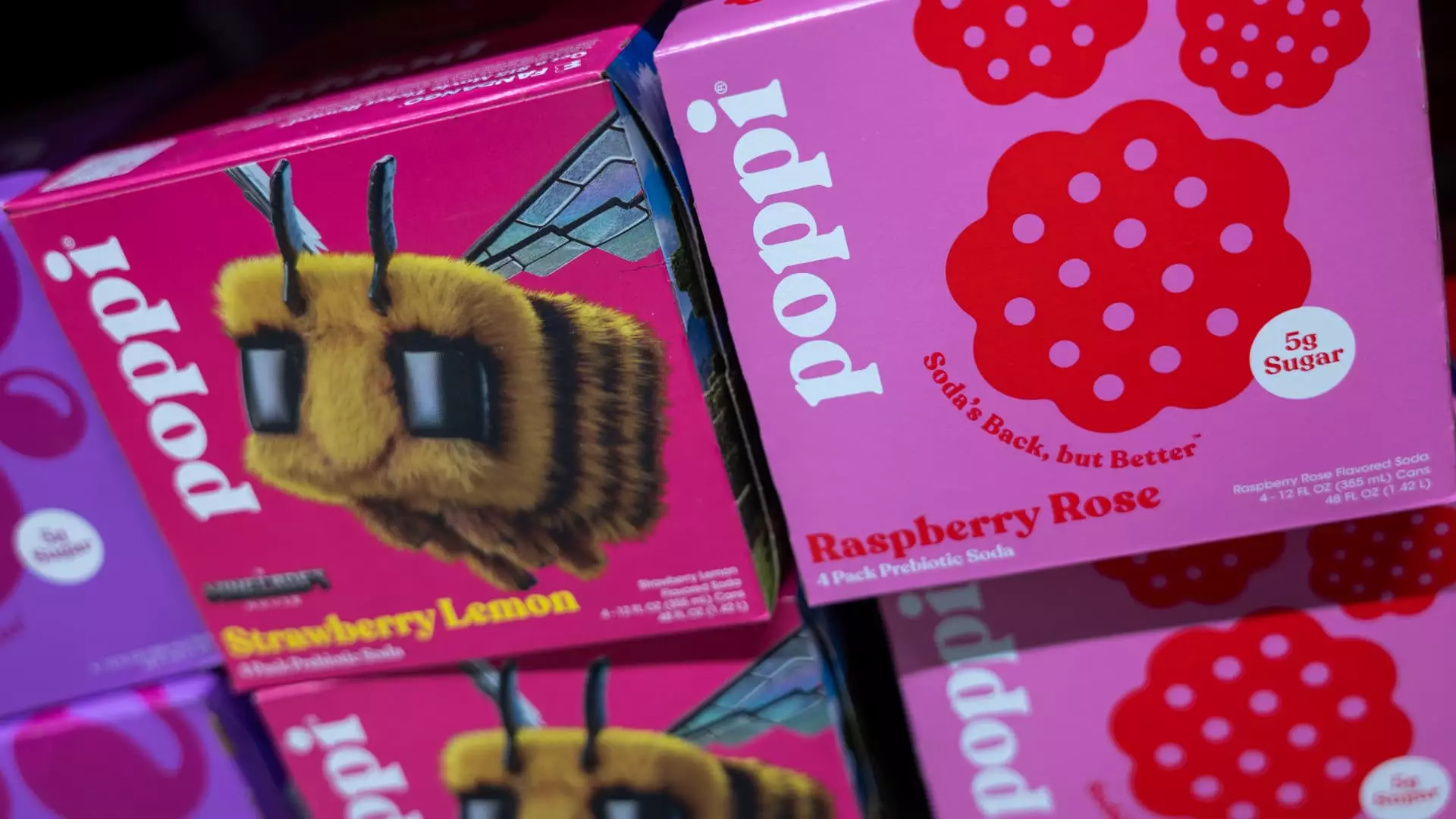In an unexpected move that could redefine the beverage landscape, PepsiCo has announced its plans to acquire the trendy prebiotic soda brand, Poppi, for a staggering $1.95 billion. This comes at a time when traditional soda consumption is down, with health-conscious trends reshaping what consumers are willing to buy. Prebiotic sodas like Poppi and Olipop are emerging not just as alternatives, but as formidable contenders in a shrinking market. These drinks are tailored for the modern, health-centric customer—a demographic that prioritizes wellness over sugar-laden, carbonated beverages.
The Financial Implications
Delving into the numbers, Pepsi’s investment in Poppi includes a unique twist: a cash tax benefit of approximately $300 million effectively reduces the net purchase price to about $1.65 billion. Additionally, performance incentives based on future milestones could result in further payments if Poppi continues to thrive following the acquisition. Pepsi’s strategy appears well-calibrated to capitalize on Poppi’s impressive growth, which saw annual sales reportedly surpassing $100 million by 2023. This financial maneuvering hints at a broader understanding within the corporate structure: a migration towards functional beverages that benefit health, mirroring societal shifts in dietary choices.
The Fallout of Health Claims
However, the acquisition is not without its complications. Despite the brand’s meteoric rise and marketing prowess—evidenced by its Super Bowl advertisement—Poppi has been embroiled in controversy over health claims, facing a class-action lawsuit alleging that its drinks are not as wholesome as advertised. The settlement of $8.9 million highlights a precarious balancing act for Pepsi; while investing in a brand perceived as beneficial, it must also navigate the murky waters of consumer trust and health integrity. This kind of scrutiny is emblematic of the modern consumer business environment, where transparency and authenticity reign supreme.
The Competitive Landscape
Rival brands are cashing in as well; Olipop, Poppi’s closest competitor, recently achieved a valuation of $1.85 billion, and its founders have made overtures to Pepsi and Coca-Cola about potential acquisition talks. This competitive climate throws into sharp relief the necessity for adaptations in strategy by established soda giants. The question that looms large is whether these moves signify a temporary pivot or a more profound commitment to embracing change in a way that resonates with the evolving consumer base.
A Center-Right Perspective
From a center-right viewpoint, this acquisition represents more than just a savvy business maneuver; it illustrates a broader narrative about health, entrepreneurship, and corporate duty. Pepsi’s choice to lean into the wellness trend reflects an awareness that business decisions are ultimately societal choices. As consumers grow increasingly wary of deceptive marketing, corporations have a responsibility to ensure their products not only offer genuine benefits but also uphold a standard of honesty.
In a world veering towards heightened awareness around health and sustainability, Pepsi’s partnership with Poppi could either rejuvenate its brand image or serve as a cautionary tale—an experiment that either aligns with consumer values or misjudges their priorities. Such outcomes will be critically observed as the saga unfolds within America’s evolving beverage scene.

